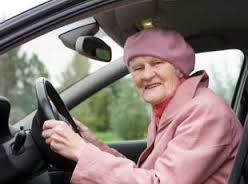Each May, we come together to honor Asian American & Native Hawaiian/Pacific Islander (AANHPI) Heritage…
In our culture, driving is a symbol of independence. Those who drive want to be able to do so for as long as possible. However, as our loved ones age, there may come a time when they need to stop driving, especially if they begin to develop dementia. How can you tell if it is time that your loved one stops driving and how do you tell them?
Before automatically deeming them unfit to operate a car, you should observe them while driving. A couple
Once you conclude that there is a problem with a loved one, you need to decide how to best address it. Here are some steps you can take to try to break the news as painlessly as possible:
- Plan what to say and who should say it. This is a sensitive topic and should be approached carefully. The key is to choose a person who can avoid being critical and try to be positive. Some options include a spouse, close friend, doctor, adult friend, caregiver, family attorney or close friend.
- Go to a geriatric care manager. They can prepare a report evaluating the social, emotional, environmental and health needs of the client, including the need to stop driving.
- Report the driver to the DMV. Most states have an office where a family member or doctor can make a referral about an unsafe driver. The state office will then evaluate the claim, and the driver may have to take a road test or have their license suspended.
- Get an independent driving evaluation. Contact your local Department of Motor Vehicles (DMV). The DMV office assesses driving capability through conducting a field test. You can also contact the Association for Driver Rehabilitation Specialists, which can refer you to a rehabilitation specialist in your state who can make an evaluation and provide recommendation.
- Find alternate transportation for the unsafe driver. Without a car, your loved one will need help getting around. The Eldercare Locator can help identify local transportation resources.
If your loved one has Alzheimer’s or another form of dementia, these steps may not be enough. The lack of a driver’s license may not deter an individual with dementia. To successfully stop this driver, you may need to disable the car or hide keys.
Contact us today for additional resources on how to have the discussion with your loved one.




Comments (0)